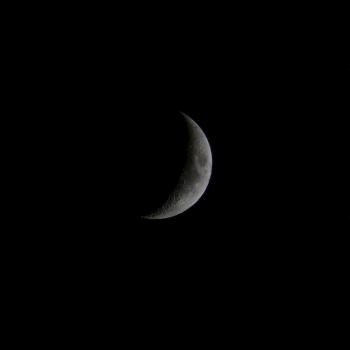This space is for the not-human, and you are so very human.
This post is going to be an interpretation of this myth over on the Otherfaith blog. I’m hoping this will help some of the new devotees understand what an interpretation can look like, and also to give my own ideas of what the story means. You can meander over to the story to read it, but I’ll be providing a brief summary of the piece here all the same.
‘The Red Room‘ is one of the few myths currently published that focuses on the Laetha. In the main mythos, the Laetha is very much a damsel-in-distress, even being stuck in an actual tower waiting to be rescued at one point. The other gods see more screen time. the Laetha, more often then not, is a background figure. But in the Red Room, he’s a main figure. The narrator in our story is his lover.
The arc of the story is very simple. A man meets the Laetha, falls in love with the god, and dies.
Usually, I am interpreting the meaning of a myth as I write it, which influences everything from specific words, phrasing, perspective, and scene shifts to overarching theme. What I focused on, when I was writing this story, was the conflict between the divine and the human. the Laetha was human, then fire, then god. Now, he is the most alien of the gods. So, what I found myself asking while I composed this piece was, “Is the reality of the gods too much for humans?”
(The ‘focus word’ of the story was ‘understanding’, after all.)
Our first hint that the Laetha is perhaps beyond human ken is when his voice is described as a ‘void’. It is compared to robotic monotones, or holes where sound should fall into. Not exactly the voice of a human. A sound barely even comprehensible to humans. Later, referring to having the Laetha in his bed, the narrator describes his voice as ‘a song’, which can be interpreted a variety of ways. (A song of moans and sighs or an actual song, seeing as how we’re dealing with faeries and gods.) This goes on and on – he doesn’t have any discernible emotions, his eyes are oddly colored, his moves as if he is mechanical at times. He’s very obviously Other.
Still, our narrator falls for the god anyway. They have very brief interactions, but eventually swirl close enough to each other to begin a relationship. Which could be seen as the joining of the human with the divine, or the human with the Other. The narrator begins realizing, even more than before, how strange his lover is. After all, the Laetha doesn’t seem to even breathe. And his home, as quoted above, is a space for the not-human.
Things only spiral out of control when a confession of love is finally made. the Laetha reveals part of himself – the Red Room – the core of who he is, and it completely alienates and destroys his lover. So – is this a simple story of the reality of a god overwhelming a human? A warning that trying to understand the gods in their entirety leads to destruction?
When I was first writing this story, I thought so. I still think the piece can be useful in navigating lines between us and the gods, as well as serve as a reminder that the gods are definitely beyond our ken at times. However, there are a few reasons why I think this piece isn’t a cut-and-dry, curiosity killed the cat/human story.
1. Our narrator is unreliable.
This is actually a very consistent theme in the myths. Even when the gods are the narrators, we get crossed wires, different stories of the same events, and forgotten details. (Though, in the case of the gods, I suspect this is more them intentionally shifting details in order to present the effect and ideas they want to convey.) The majority of the stories in the Otherfaith involve some sort of uncertainty, and the events the spirits go through usually leaves them rather unreliable if we’re looking for an ‘objective’ story. In this story especially our narrator isn’t the strongest in knowing what is ‘really’ happening. He’s a human wrapped up with a god.
And he’s just a person. He ignores things he doesn’t want to accept, imagines things that he’d prefer to have happened, remembers incorrectly. He tells the story out of time. We all fudge details, even without being consciously aware, in order to paint a better picture of ourselves. If we can paint another person or entity as bad or evil or beyond human compassion, we can more easily paint ourselves as a hero (or ‘more human’) in other ways. (By the end of the story, our narrator is referring to the Laetha as ‘it’.)
Another thing to be aware of concerning the issue of a not-so-reliable narrator is that people will come to interesting conclusions when given a blank slate. the Laetha is notable for his dull, emotionless appearance and his often plain responses. Even the Dierne sometimes imagines reactions that the Laetha doesn’t actually have. We pour ourselves into the supposed emptiness and receive a mirror. If we just moved the mirror, we might be able to see what is actually there.
2. Even the Otherness is familiar.
While I won’t say there is some destined yearning for the divine to meet the human and vice versa – mostly since I find much more interest and depth in stories that involve people taking actions rather than being guided by fate – the Laetha, for all his strangeness concerning humanity, uses a lot of human symbols. He’s all machine and magic, yet he keeps his core as a heart. Different gods may be farther from humanity and from the familiar, but the Laetha is still close enough for us to make sense of him.
But – the Otherness in this story can still be described and voiced. It is given shape and form and relationship to humanity.
3. Not everyone is destroyed
In the Otherfaith mythos, lovers and friends of the gods are exposed to the core truth or truths of the gods many times. More often then not, they make it out okay. Even in this story, the Laetha references other people who have made it out of the room alive. Though this isn’t necessarily a failing on the part of the narrator, it does complicate a cut and dry interpretation of the events into ‘seeing the whole of a god is bad’.
It is dangerous, but in the Otherfaith it is not the most dangerous thing.
I also think that, as each of the Four Gods is an individual, they might break certain people and not damage others (at least not to the point of such disaster). Our narrator couldn’t handle what he saw – a god with a mechanical heart, a room full of blood and steel, a being that didn’t feel like humans feel – but I don’t think that means that every god, in the Otherfaith, is comprehensible to everyone. They will be devastating to some and homecoming to others.
So – to me, this story is less about the great divide between humans and gods and how we will never understand each other. It is more about thrusting our assumptions and preferences and desires onto a god and what can happen when we don’t actually discern whether those assumptions are true. We can’t go walking into the land of the gods if we’re going to assume that we are the top dog. We can’t go mining for treasures in those hills without being aware of the dangers.












